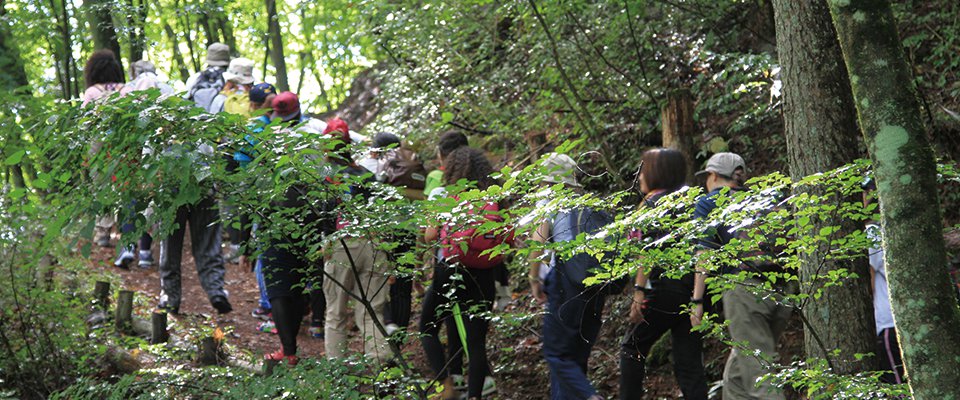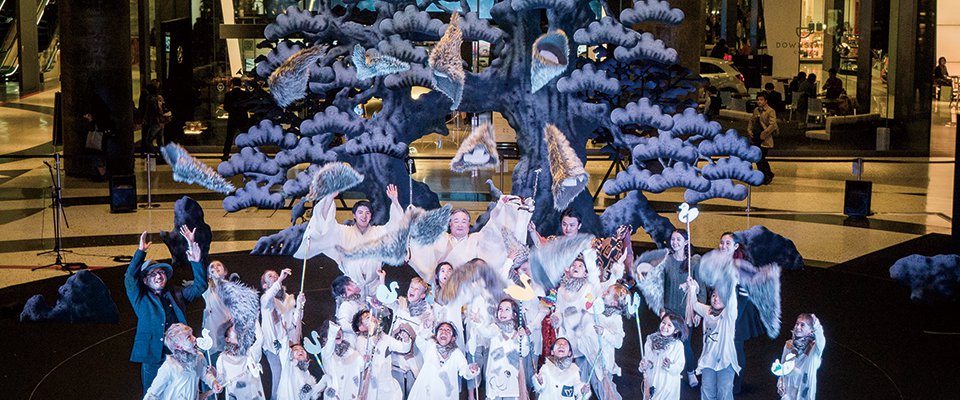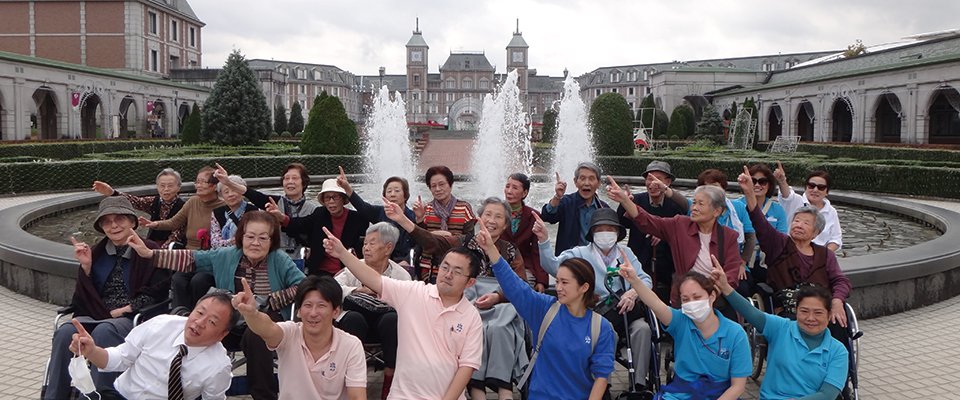The Japan Foundation Prizes for Global Citizenship (2015)
This year marks the 31st anniversary of the establishment of the Japan Foundation Prizes for Global Citizenship in 1985. In its 31 year history, 94 organizations have been awarded. The Japan Foundation Prizes for Global Citizenship is intended to support organizations located throughout Japan that endeavor to strengthen networks among citizens both Japan and abroad, and to share knowledge, ideas, and expertise through intercultural exchange.
The Japan Foundation Prizes for Global Citizenship was established under the name of the Prizes for the Promotion of Community-Based Cultural Exchange, and renamed as the Japan Foundation Prizes for Global Citizenship in 2005.
In 2015, of the 134 organizations that applied or were nominated for the prizes, the following three organziations were selected as awardees. The recipient organizations were presented with the main prize (a certificate) and prize money of 2 million yen per organization.
Awardees (in geographical order)
NPO Peace Field Japan
- Representative
- Yasuyuki Murahashi, Director
- Year of Establishment
- 2009
- Website
- http://www.peace-field.org/
- Social Media Accounts
- http://ameblo.jp/peacefield/

<Activity Outline>
Since 2007, Peace Field Japan has been carrying out “KIZUNA Project - SATOYAMA for Peace -” every summer in which female high school students from Israel and Palestine, and female high school students and college students from Japan gather in Kosuge Village, Yamanashi Prefecture to engage in dialogue and exchange through living together for two weeks.
The participants share the experience of interacting with the satoyama life style (the traditional Japanese rural lifestyle) and traditional culture that maintains a spirit of harmony and coexistence with people and nature, and consider together what they can do in their home communities to build a sustainable society. Through living togehter, they develop mutual understanding and a multi-generational network. The Japanese youths who participate in the program aware and grow to serve as a bridge to the world by revaluing their own culture while being active internationally.
<Reasons for the Prize>
In 2007, Peace Field Japan began “KIZUNA Project - SATOYAMA for Peace -” in which female high school students from Israel and Palestine and female high school students, and college students from Japan gather in Kosuge Village, Yamanashi Prefecture to engage in dialogue and exchange through living together.
The approach to deepening mutual understanding by having youths from countries and regions in conflict with each other share the experience of interacting with the satoyama lifestyle together with the Japanese youths has been praised as being advanced and unique. Through the experience of living together, the participants learn the value and purpose of acknowledging each other differences, such as beliefs, traditions, and culture, as well as the abilities to listen to each other with patience and the importance of compassion for other people.
While this project is a small scale grass roots activity, it has major social purpose as an activity which touches on citizen collaboration, mutual international understanding, and the very roots of peace development.
<Comments from the Awardee>
While our project is a small grass roots activity, we have been able to continue through the support of numerous people and organizations, including the Japan Foundation. The youths from three regions, who live in the same world, consider the problems of the world and each region together, and strive to contribute to society. Their growth was praised and brought us this prize. This will greatly encourage those youths. We hope to continue our activities to allow youths to interact together in the traditional Satoyama environment and develop a network of people who act, so that we may grow together.
Yamamoto Noh Theater
- Representative
- Akihiro Yamamoto, Director
- Year of Establishment
- 1927
- Website
- http://noh-theater.com/
- Social Media Accounts
- https://ja-jp.facebook.com/nohtheater/
- https://twitter.com/nohgakuyamamoto

<Activity Outline>
Yamamoto Noh Theater is the oldest Noh theatre in Osaka, having carried on the tradition of the art for about 90 years. Through exchange with Petko Slavov who came to study Noh performing arts in Japan from Bulgaria in 2008, cultural exchange based on Noh performing arts has been continued in Central and Eastern Europe. The Noh performance of Momijigari that was performed together with local residents in Bulgaria garnered a huge reaction in that country. Through collaboration with Slavov, a Noh app called “Ohayashi Sensei” was developed that allows users to experience performing the Noh music used in order to start spreading awareness of Noh throughout the world using cutting edge technology.
<Reasons for the Prize>
Hearing from Petko Slavov, a Noh researcher from Bulgaria, that there was a thirst for “true Japanese culture” in Central and Eastern Europe, Yamamoto Nohgakudo embarked on a program of cultural exchange in the regions through Noh. The performance of the Noh play Momijigari joined by ten local performers garnered great interest in Bulgaria. The cultural exchange between Eastern Europe and Japan is developing and it is a model for grass roots citizen collaboration for the promotion of mutual understanding.
Further, the new Noh work called Mizu no Wa calls on awareness in modern society on the theme of the environmental problem both in Japan and the world, and serves and an advanced initiative by allowing foreigners and children to participate as performers. The “Ohayashi sensei” app developed jointly by Yamanoto Noh Theater and Slavov is a unique initiative that enables anyone to experience festival music.
<Comments from the Awardee>
We would like to show our gratitude for the many who have assisted in our activities to date for the honor of receiving this prize. As distances grow shorter as the world rapidly globalizes, we realize that we enter an age where international mutual understanding through culture even more important. We hope that by spreading the appeal of Nohgaku, a UNESCO intangible cultural heritage that contains the essence of the Japanese spirit, we can contribute in our own small way to world peace.
NPO Kobe Foreigners Friendship Center
- Representative
- Kim Songil, Chairman
- Year of Establishment
- 1997
- Website
- http://www.social-b.net/kfc/
- Social Media Accounts
- https://www.facebook.com/profile.php?id=100009532133430&fref=ts

<Activity Outline>
We work to support overcoming numerous difficulties and barriers here in Kobe, a city which has long been home to many foreign residents, through the cooperation of Japanese residents and foreign minorities. These barriers include the language barrier faced by all ages, policy barriers, and poverty.
Our initiatives include consultation for difficulties in daily life in native languages of foreign residents, providing opportunities for one on one and group lessons in the Japanese language, creation and distribution of Japanese language learning materials, study and school enrollment support for children with roots in foreign countries, book reading gatherings for foreign children in collaboration with public libraries, nursing support and the development of safe havens for minority seniors that respects their ethnicity and historical background, and gatherings for returned Japanese war orphans who were left in China. Total participation in our projects reaches a cumulative annual number of 30,000 people.
<Reasons for the Prize>
The Kobe Foreign Friendship Center was established after the Great Hanshin-Awaji Earthquake to carry out such activities as educational support for children of foreign residents, Japanese language classes for foreign residents working in the community, and nursing care for foreign senior citizens.
While such support for foreigners is typically separated along cultural backgrounds, the Center goes beyond nationality and ethnicity to provide a valuable opportunity for foreigners to be active together in the community, including resident Koreans and Vietnamese.
More than 2 million foreigners currently reside in Japan, and the building communities in which Japanese and foreign residents can enjoy an abundant life together is an urgent task. The activities of the center, which have leveraged the experience in supporting youths and the elderly among resident Koreans for supporting Vietnamese refugees and returnees from China, serves as a model for other communities to follow.
<Comments from the Awardee>
We are grateful to have been selected for the Prize for Global Citizenship. The activities we began after the Great Hanshin-Awaji Earthquake have been supported, susutained, and advanced by cooperation between both foreign and Japanese residents. Empathy, compassion, and gentleness towards others, even when words cannot be understood and culture is different, create a place of mutual support that extends beyond nationalities and ethnicities. While there are many challenges to projects carried out by the gathering of people from diverse cultures, we hope to continue to spread awareness of the pricelessness of a society where people live through mutual support.
Read a report of the 2015 Japan Foundation Prizes for Global Citizenship award ceremony in Wochi Kochi Magazine.
- What We Do Top
- Arts and Cultural Exchange [Culture]
-
Japanese-Language Education Overseas [Language]
- Japanese-Language Education Overseas [Language] Top
- Learn Japanese-language
- Teach Japanese-language
- Take Japanese-Language Test
- Know about Japanese-language education abroad
- The Japanese-Language Institute, Urawa
- The Japanese-Language Institute, Kansai
- Japanese-Language Programs for Foreign Specified Skilled Worker Candidates
- Japanese Language Education for Japanese Children Resident Overseas and for the Descendants of Migrants
- Archives
- Japanese Studies and Global Partnerships [Dialogue]
- JF digital collection
- Other Programs / Programs to Commemorate Exchange Year
- Awards and Prizes
- Publications
